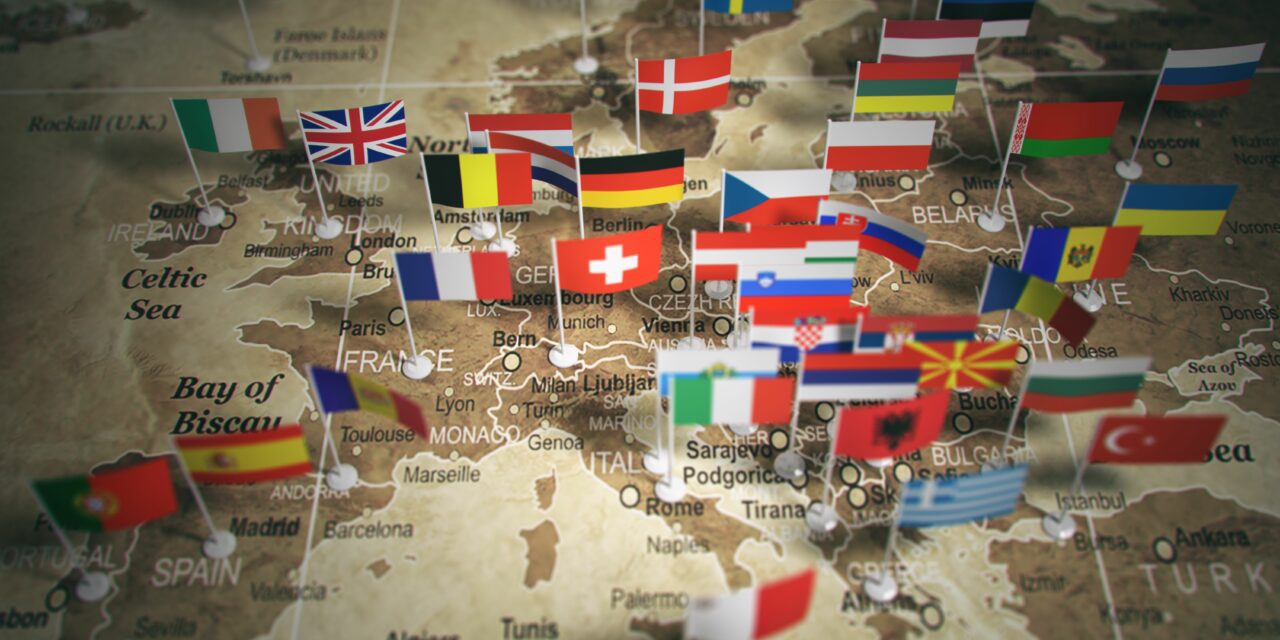Introduction
In the grand tapestry of global migration, the concept of EU Citizenship by Descent emerges as a unique thread. It unravels a pathway to citizenship based on one’s ancestral roots within the European Union (EU). To delve into this concept, it’s crucial to understand that EU citizenship by descent operates on jus sanguinis – Latin for ‘right of blood.’ Essentially, if your ancestors were citizens of an EU country, you might be eligible to claim citizenship by descent.
The benefits of securing EU citizenship through ancestry are manifold. Firstly, it provides the right to live, work and study in any of the 27 EU countries – a privilege bound by the principles of free movement within the Union. Additionally, it grants access to world-class education and healthcare systems. Not to mention, it opens up opportunities for business development and tax planning.
This article serves as a guide through seven of the best countries to claim EU Citizenship by Descent. The journey takes us from Hungary, with its straightforward application process, to Ireland, with its UK travel perks. Each country section explores eligibility requirements and distinct advantages that come along with obtaining citizenship. The aim is not simply to inform but also to inspire readers who might uncover a path to their European heritage and, in turn, a new realm of opportunities.
1. EU Citizenship by Descent in Hungary
The journey to obtaining EU citizenship can begin with an exploration of Hungarian citizenship laws. Known for its welcoming approach towards individuals of Hungarian descent, Hungary places great importance on blood ties or “jus sanguinis”.
Requirements and Eligibility for Hungarian Citizenship by Descent
Notably, Hungarian law provides a relatively straightforward path for those seeking citizenship through ancestry. If you have at least one parent or grandparent who was a Hungarian citizen, you may be eligible. The process involves providing evidence of your lineage, which can include documents like birth certificates that clearly indicate your link to a Hungarian ancestor.
There’s no requirement for you to reside in Hungary before applying. However, evidence of basic proficiency in the Hungarian language is needed. This can be demonstrated through an interview conducted in Hungarian as part of the application process.
Advantages of Obtaining Hungarian Citizenship
Securing Hungarian citizenship opens up a multitude of opportunities. Firstly, it grants the freedom to live and work anywhere within the 27 countries of the European Union.
Access to world-class education and healthcare systems is another significant benefit. As an EU citizen, you would be entitled to study at any EU university under the same conditions as nationals.
In addition, holding a Hungarian passport brings with it visa-free travel to 181 countries worldwide. This ranks the Hungarian passport among the top 10 most powerful passports in the world.
Apart from these tangible benefits, becoming a citizen also allows you to engage more deeply with Hungary’s rich cultural heritage and history.
Hungary’s citizenship by descent program stands as an attractive option for many because of these reasons. It offers promising prospects for those who qualify, making it one of the best countries to consider when looking for EU citizenship by descent.
Stay tuned as we continue our exploration with Italy next on our list.
2. Italy
An equally appealing avenue for acquiring EU citizenship by descent lies in the heart of the Mediterranean – Italy. Known for its rich history, gastronomic delights, and scenic landscapes, it also offers a clear path to citizenship through Italian ancestry.
Italian citizenship laws are straightforward when it comes to recognizing citizenship by descent, also known as jure sanguinis. This principle allows individuals with Italian ancestors to apply for citizenship, even if they have never set foot on Italian soil.
Eligibility and Requirements
To qualify for Italian Citizenship By Descent, you need to trace your lineage back to an Italian citizen. This is typically done through birth, marriage or naturalization records. However, the line of descent should be unbroken, meaning that all individuals in the lineage must have been alive after Italy’s unification in 1861.
While there is no limit on how far back one can go to establish this lineage, certain restrictions apply:
- If your Italian ancestor was a woman who gave birth before 1948 (the year women were granted the right to pass on citizenship), you may need to take your case to court.
- If your ancestor became a citizen of another country before August 15, 1992, they would have lost their Italian citizenship and could not pass it on.
Advantages of Obtaining Italian Citizenship
Italian citizenship opens up a plethora of opportunities:
- Freedom of movement: As an EU citizen, you can live, work and study in Italy and anywhere within the European Union.
- Access to healthcare and social services: Italy has one of the best healthcare systems in the world, and all citizens have access to it.
- Educational opportunities: You’ll enjoy access to some of the world’s most prestigious educational institutions at EU rates.
- Voting rights: You can vote in Italian elections and referendums as well as EU parliamentary elections.
Embracing your Italian heritage isn’t just about enjoying pizza in Naples or admiring art in Florence. It’s about claiming a part of who you are while benefiting from a world-class lifestyle that only an EU country can offer.
3. Poland
Poland, a land rich in history and culture, offers a unique opportunity to claim Polish citizenship through ancestry. This pathway, officially known as Citizenship By Descent, allows individuals to obtain Polish nationality if they can prove their lineage to Polish ancestors.
Requirements and Eligibility for Polish EU Citizenship by Descent
Polish law embraces the principle of jus sanguinis, meaning blood right, which gives precedence to one’s lineage over the place of birth when determining nationality. Therefore, if you have at least one parent, grandparent, or great-grandparent who was a Polish citizen and you have maintained an unbroken line of Polish citizenship, you are eligible to apply.
However, it’s worth noting that the process involves a meticulous review of historical documents, such as birth certificates and military records. These documents must clearly establish your direct link to your Polish ancestor(s).
In addition to document verification, language proficiency isn’t a prerequisite but demonstrates a strong connection to the country and its culture, which could increase your chances of success.
Advantages of Obtaining Polish Citizenship
Obtaining Polish citizenship comes with a myriad of benefits. As a citizen, you’ll gain:
- Access to live and work anywhere within the European Union: This includes countries such as Germany, France, Italy, and Spain.
- Free education and healthcare: Poland provides free education up to university level and has a comprehensive healthcare system.
- Voting Rights: As a citizen, you will have the right to vote in all elections and referendums.
- A second passport: A Polish passport ranks 16th on the Henley Passport Index (2021), granting visa-free access to 183 destinations worldwide.
With its captivating history, vibrant cities like Warsaw and Krakow, picturesque landscapes, and advantageous citizenship benefits, exploring the potential of securing your Polish Citizenship By Descent could be a rewarding venture.
4. Bulgaria
Bulgarian Citizenship by Descent: A Bridge to Eastern Europe
Eastern Europe, rich in history and culture, has become an attractive destination for those seeking EU citizenship. Bulgaria, with its picturesque landscapes and burgeoning urban centers, offers ample opportunities through its citizenship by descent program.
Requirements and Eligibility for Bulgarian EU Citizenship by Descent
To qualify for Bulgarian citizenship through lineage, one must show evidence of a parent or grandparent holding Bulgarian citizenship. Key documents include:
- Birth certificates of the applicant and Bulgarian relative
- Proof of Bulgarian citizenship of the relative (passport or ID)
- Marriage certificates (if applicable)
All documents need to be translated into Bulgarian and legalized.
It’s important to note that Bulgaria does not recognize dual citizenship for non-EU citizens unless the individual is a natural-born citizen of both countries. Therefore, anyone pursuing this path might be required to renounce their original citizenship.
Advantages of Obtaining Bulgarian Citizenship
Acquiring Bulgarian Citizenship holds several advantages:
- EU Perks: As a member of the European Union, Bulgaria provides its citizens with freedom to live, work and study anywhere within the EU.
- Visa-Free Travel: Bulgarian passport holders enjoy visa-free or visa-on-arrival access to over 160 countries worldwide.
- Affordable Living Standards: Bulgaria boasts some of the most affordable living standards in Europe without compromising on quality of life.
Possessing a Bulgarian passport opens up an array of opportunities, not just within Bulgaria but across the entirety of the European Union. It’s a gateway to exploring diverse cultures, landscapes, and societies whilst benefiting from the privileges that come with EU membership.
Up next, we delve into another picturesque gem tucked away in Southeastern Europe – Croatia. With turquoise waters and ancient walled towns, it’s no surprise that many are intrigued by Croatian ancestry and what it could offer them in terms of EU citizenship possibilities.
5. Croatia
Drenched in history, culture, and natural beauty, Croatia is an enticing European destination that offers more than just a popular tourist spot. If you have Croatian ancestry, you can take advantage of this through Croatian citizenship by descent.
Requirements and Eligibility for Croatian EU Citizenship by Descent
To apply for Croatian citizenship, one must show that they have at least one direct ancestor who was a Croatian citizen or an ethnic Croat. The process requires diligent research and documentation to prove your lineage.
An important consideration is the notion of ius sanguinis, or “right of blood,” which Croatia follows for citizenship grants. This means if your parent(s), grandparent(s), or even great-grandparent(s) were Croatian citizens, you could be eligible.
Key documents required can include:
- Birth certificates
- Marriage certificates
- Death certificates
- Domestic status certificates
- Proof of nationality
The process may seem daunting, but with clear records and patience, it can open doors to a world of opportunities.
Advantages of Obtaining Croatian Citizenship
Croatia graces the stunning Adriatic coast sharing borders with several countries, including Hungary and Italy. As such, holding a Croatian passport opens up unrestricted access to these neighboring nations and the entire Schengen Area.
A significant benefit of obtaining Croatian citizenship by descent includes the right to live, work, and study anywhere within the EU. This allows individuals the flexibility to explore different cultures and educational opportunities.
Notably, Croatia boasts affordable living costs compared to many Western European nations, making it an attractive option for those considering relocation or retirement.
Additionally, healthcare benefits are considerable as Croatian citizens get access to free healthcare within the country and emergency healthcare across the EU.
Croatia’s rich cultural heritage combined with its modern infrastructure makes it a worthy consideration for obtaining EU citizenship by descent. While moving on to our next contender on this list – Lithuania – let’s remember each nation offers unique benefits catered toward diverse needs and aspirations.
6. Lithuania
Lithuania, a Baltic gem in the heart of Europe, offers a path to EU citizenship through ancestry. Tracing your lineage to this vibrant country could open the doors to a plethora of opportunities across the European Union.
Lithuanian Citizenship by Descent: Requirements and Eligibility
The process of obtaining Lithuanian citizenship by descent is underpinned by three key criteria:
- Proof of Ancestry: You must provide documented evidence that you have at least one ancestor who was a Lithuanian citizen. This could be in the form of birth, marriage, or death certificates.
- Absence of Voluntary Renunciation: If your ancestors voluntarily renounced their Lithuanian citizenship, you would not be eligible.
- Preservation of Continuity: There should be an unbroken line of Lithuanian citizenship from your ancestor to you.
Bear in mind that applications can be complex and may require professional assistance to ensure all paperwork is correctly submitted.
Advantages of Obtaining Lithuanian Citizenship
Securing Lithuanian citizenship grants a multitude of benefits:
- Freedom to Live and Work in the EU: As an EU citizen, you enjoy the right to live, work, or study anywhere within the European Union.
- Access to High Standard Education and Healthcare: Lithuania boasts a robust education system and healthcare services which are accessible to all its citizens.
- Visa-Free Travel: Holders of a Lithuanian passport can travel visa-free or with visa-on-arrival access to over 180 countries worldwide.
By tracing your roots back to Lithuania and gaining citizenship, you’re not just reclaiming your heritage but also opening up a world enriched with possibilities. The journey can be intricate yet rewarding, as it paves the way for numerous advantages that come with being part of the EU’s diverse tapestry.
As we continue our exploration into countries offering citizenship by descent, our next stop is none other than the Emerald Isle – Ireland.
7. Ireland – EU Citizenship by Descent and UK Access Too
A birthright offering a world of opportunities, Ireland Citizenship by Descent opens up a gateway to the European Union and beyond. To qualify, one just needs to have at least one grandparent who was born in Ireland. The process is straightforward, with no requirement for residency or language proficiency.
A key advantage of obtaining Irish citizenship lies in the unrestricted access to the EU job market it provides. This includes rights to work, study, and live anywhere within the European Union. Additionally, as an Irish citizen, you are privy to numerous social benefits such as healthcare and education.
Apart from these benefits, there’s another unique aspect associated with Irish citizenship: The Common Travel Area (CTA). This arrangement between Ireland and the UK allows free movement of people between the two countries. It grants Irish citizens residing in Britain the same social and civil benefits as British citizens.
“The Common Travel Area between Ireland and the UK offers additional advantages to Irish citizens”
In essence, Irish citizenship by descent not only connects you with your ancestral roots but also presents immense practical benefits – a passport to explore and embrace opportunities throughout Europe.
Beyond the access to the broader European Union, Irish citizenship further grants you the right to vote in all elections and referendums in Ireland, enabling you to actively participate in shaping the future of the nation. This democratic privilege extends from local council elections to Presidential votes, making your voice heard and your opinion count.
Moreover, having an Irish passport also facilitates smoother travel across many countries. As an EU member state, Ireland enjoys visa-free or visa-on-arrival access to 185 countries worldwide. This significantly reduces the time and hassle related to visa applications when planning international travel.
Notably, Irish citizenship by descent also opens doors for international work opportunities. The EU’s principle of free movement allows citizens to live and work in any member state without requiring a job offer beforehand. Consequently, this benefit significantly broadens your career prospects across a diverse range of industries and cultures within Europe.
Furthermore, as an Irish citizen residing in Britain under the Common Travel Area agreement, you can benefit from public healthcare services on equal terms with UK nationals. The National Health Service (NHS) provides comprehensive health coverage, ensuring the affordability and accessibility of medical services.
From enjoying democratic rights to accessing international travel and work opportunities, healthcare benefits, and more – Irish citizenship by descent indeed offers a wealth of advantages.
EU Citizenship by Descent – Irish Department of Foreign Affairs
Conclusion
In conclusion, obtaining EU citizenship by descent presents a host of advantages. It offers unrestricted access to live, work and study in the 27 EU countries. It also grants the right to world-class education and healthcare systems and opens up opportunities for business development and tax planning. Countries like Hungary, Italy, Poland, Croatia, Lithuania, and Ireland each offer their unique paths to citizenship based on ancestral roots.
Hungary and Italy simplify the process with a straightforward application process and clear laws recognizing citizenship by descent. Poland’s eligibility extends to those who can prove their lineage to Polish ancestors, while Croatia offers affordable living costs and free healthcare. Lithuania requires proof of uninterrupted Lithuanian ancestry but rewards with visa-free travel to over 180 countries. Lastly, Ireland stands out with its Common Travel Area agreement with the UK granting additional benefits.
In essence, gaining EU citizenship by descent is not just about embracing one’s European heritage; it’s about availing oneself of a new realm of opportunities across Europe.
Your Questions Answered
What is EU citizenship by descent?
EU citizenship by descent is the process of obtaining citizenship of a European Union country through ancestry or lineage.
What are the benefits of obtaining EU citizenship through ancestry?
Obtaining EU citizenship through ancestry offers several benefits such as freedom to live, work and study anywhere in the EU, access to social and healthcare services, and the right to vote in EU elections.
What are the requirements for obtaining Hungarian citizenship by descent?
The specific requirements for obtaining Hungarian citizenship by descent vary, but generally involve proving direct lineage from a Hungarian citizen.
What advantages does Italian citizenship offer?
Italian citizenship offers numerous advantages including the right to live, work and study in Italy and other EU countries, access to Italian social and healthcare services, and the ability to vote in Italian and EU elections.
How can I obtain Polish citizenship through ancestry?
Polish citizenship can be obtained through ancestry by demonstrating direct lineage from a Polish citizen. This typically involves providing birth certificates, marriage certificates or other official documents.
What are the eligibility criteria for Bulgarian citizenship by descent?
Eligibility for Bulgarian citizenship by descent generally requires proof of direct lineage from a Bulgarian citizen. The specific documents required may vary.
What are the advantages of obtaining Croatian citizenship?
Obtaining Croatian citizenship provides several advantages such as the right to live, work and study in Croatia and other EU countries, access to Croatian social and healthcare services, and voting rights in Croatian and EU elections.
How can I obtain Lithuanian citizenship by descent?
Lithuanian citizenship can be obtained by descent by proving direct lineage from a Lithuanian citizen. This typically involves providing official documents like birth certificates or marriage certificates.










